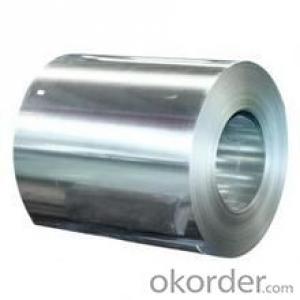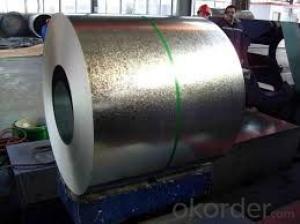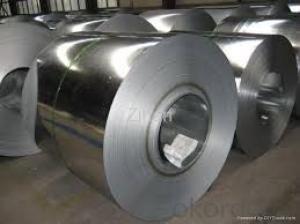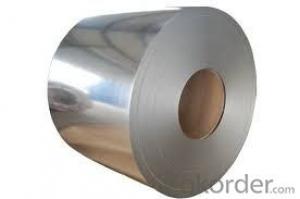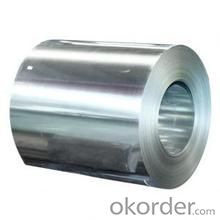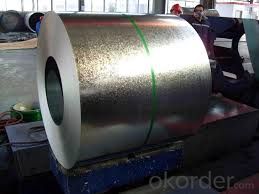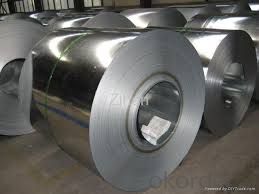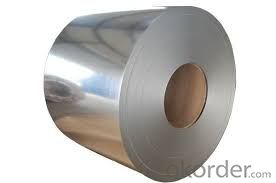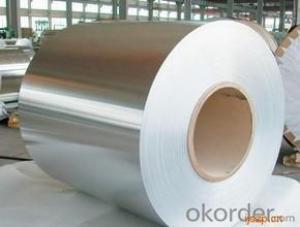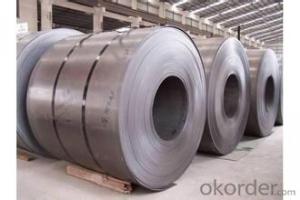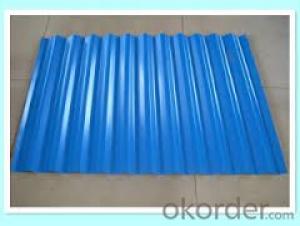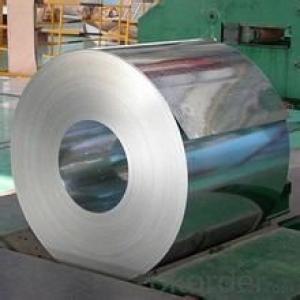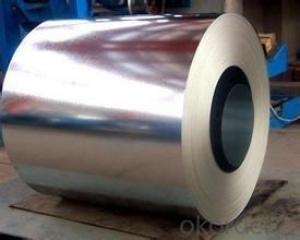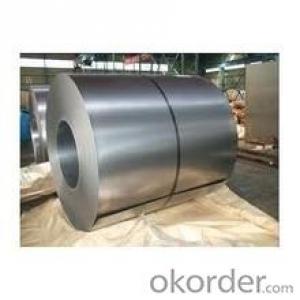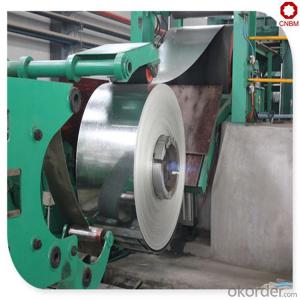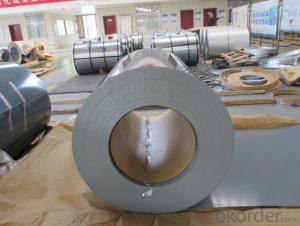good hot-dip galvanized/ auzinc steel -SGCC in China
- Loading Port:
- Tianjin
- Payment Terms:
- TT OR LC
- Min Order Qty:
- 30 m.t.
- Supply Capability:
- 5000000 m.t./month
OKorder Service Pledge
OKorder Financial Service
You Might Also Like
Description:
Hot-dip aluzinc steel sheet is substrated on cold rolled steel (CRC) in various strength and specification. Coating composition is 55% aluminum in weight ratio, 43.4% zinc, and 1.5% silicon, with excellent corrosion and heat resistance performance.
Specifications:
1.Mateials:SGCC,DX51D / DX52D /S250,280GD
2.Size:width:600-1250mm(900mm,1215mm,1250mm,1000mm the most common)
thickness:0.15-2.0mm
length:1000-6000mm,as your require
3.Zinc coating :60-180g( as required)
4.Coil id:508mm
5.Coil weight: 3-5MT(as required)
6. Surface:regular/mini/zero spangle, chromated, skin pass, dry etc.
Applications:
Galvalume Coil widely used for roofing products, It is also the ideal base material for Prepainted Steel Coil.
1. roofing
2. gutters
3. unexposed automotive parts
4. appliances
5. furniture
6. outdoor cabinetry
Images:
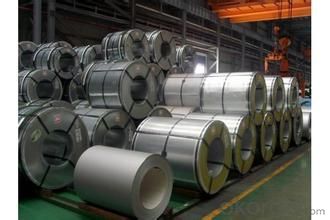
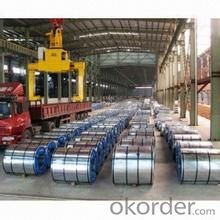
Production of cold formed corrugated sheets and profiles for roofing, cladding, decking, tiles, sandwich walls, rainwater protective systems, air conditioning duct as well as electrical appliances and engineering.
- Q: So, i recently bought the game red steel 2 and i beat it, it was an amazing game! although since i had never played the first one ( i never knew about it actually) i had alot of questions like, why was he banished, where is his actual master, etc so i searched up on Youtube, red steel 1 to figure it all out and the games look nothing alike!! i mean the first one is like nothing but guns and the characters arnt the same ( well at least i dont think so) could someone explain why?
- Well, since Red Steel was one of the games that released when the Wii came out, initially people thought it was would be amazing and bought it on impulse since there wasn't a lot of options in the beginning. Turns out that the game was extremely horrible and no one liked it. So the company who made Red Steel (sorry, I forgot their name) wanted to take a totally different approach to their next game. That's why its all different. I haven't played either game so if there were any cliffhangers in the first game unfortunately you never know what happened.
- Q: which one(glass or steel)has more power and velocity? im planning on using my slingshot for hunting.
- definitely steel. i used to hit bullseyes with a good slingshot, and you need heavy, perfectly spherical small steel shot. smaller than a marble, bigger than a bb.
- Q: What is the maximum width of galvanized steel strip, please? The galvanized coat is 275, and how long is one coil?
- The length of the roll is related to its width and thickness, but not to the extent of the zinc layer.
- Q: I don't know it is low alloy steel or high allow steel or medium carbon steel
- Yes,30CrNiMo8 is a high grade alloy steel. *These steels generally contain higher carbon concentration (0.25%). As they are hardenable their mechanical properties can be tailored to specific needs by suitable adjustment of the annealing temperature. Finished products can be hardened to have a high surface hardness in combination with a tough and ductile core. The mechanical properties increase with increasing carbon concentration. Cr and Ni add additional improvements in properties. The Mn grades are a little cheaper. V and Mo add improved temperature resistance. The grades Cxx are developed for less stringent quality requirements but are cheaper.
- Q: Can steel coils be coated with anti-graffiti materials?
- Yes, steel coils can be coated with anti-graffiti materials. These materials create a protective layer that can prevent graffiti from adhering to the surface, making it easier to remove any unwanted markings.
- Q: How are steel coils used in the manufacturing of agricultural irrigation systems?
- Steel coils are used in the manufacturing of agricultural irrigation systems primarily for the fabrication of pipes and tubing. These coils are formed into the desired shape and size, allowing for efficient water transportation and distribution throughout the agricultural fields.
- Q: can steel boil and turn into a gaseous state?? if so how hot does it have to be for it to boil
- hahah umm ya u could boil steel but prob not at your house hahah and the boiling point of a medium carbon steel to be around 3000K
- Q: I had a damascus steel katana made for me and was wondering if I could put gun blue on it to make the steel black and it still work right
- There okorder , the true Damascus is a region of spain, which is similar to getting swords made in Pakistan
- Q: What kind of insulation should be used in a steel building?
- Fiberglass batts or spray on foam both work well
- Q: Obviously this is an easy question for anyone who works with metal. However, I am currently writing a book and had an idea that had to do with these two metals. Is it possible for gold to be folded into steel while it is being forged? Do 3-metal alloys exist? If this is not possible with current metal-working techniques and technology, what would be needed to make it possible? And finally, what exactly would the mixing of these two yield? A weak metal? A brittle metal? How would it compare to iron or gunmetal? If you have no idea, please offer speculations. Thank you!
- Not okorder /
Send your message to us
good hot-dip galvanized/ auzinc steel -SGCC in China
- Loading Port:
- Tianjin
- Payment Terms:
- TT OR LC
- Min Order Qty:
- 30 m.t.
- Supply Capability:
- 5000000 m.t./month
OKorder Service Pledge
OKorder Financial Service
Similar products
Hot products
Hot Searches
Related keywords
